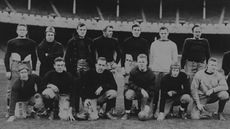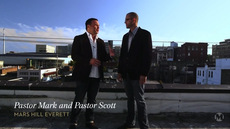“If my people who are called by my name humble themselves, and pray and seek my face and turn from their wicked ways, then I will hear from heaven and will forgive their sin and heal their land.” 2 Chronicles 7:14
If it wasn’t clear in my previous post, I’m a recovering English geek. Before coming on staff at this church, I was a high school English teacher, so I geek out about literature, composition, and even grammar. When I read something like the above verse, I tend to notice, among other things, the syntax (which is a fancy word for saying “the order and arrangement of words”).
What stands out in this verse is the conditional clause structure, in which a condition is stated (starting with “if”) and a result follows (starting with “then”). The intent is to show the relationship between the two—in this case a promise that God has made with his people, the Israelites.
As is the case for all of Scripture, we have to be careful about taking this promise out of context, which many have been prone to do. We have to consider who is speaking, to whom, and why.
Here, God is speaking to Solomon after the temple has been dedicated about how the Israelites are to relate to God and how God will respond to them. What God is not saying here is that if they do these things (humble themselves, pray, seek God’s face, turn from their wicked ways), then they will be his people. Instead, he is saying, as my people whom I called, you can do these things, trusting that I will hear you, forgive you, and heal all that your sin—all that your rebellion against me—has broken, including all of creation and my relationship with you.
God’s presence in the temple is an assurance of this promise. If God is not present, then this is not possible. But his presence demonstrates his desire for an intimate relationship with his people and his dedication to redeeming and restoring all things.
Ultimately, this desire and dedication is fulfilled in Jesus, who did what the Israelites and we could not do: humbled himself, prayed fervently, sought the face of the Father, and suffered God’s wrath for our wicked ways. He dwelt among us and died for us to demonstrate that he hears us, forgives us, and heals us.
Cliff Ellis is the pastor of biblical living at the West Seattle church.















